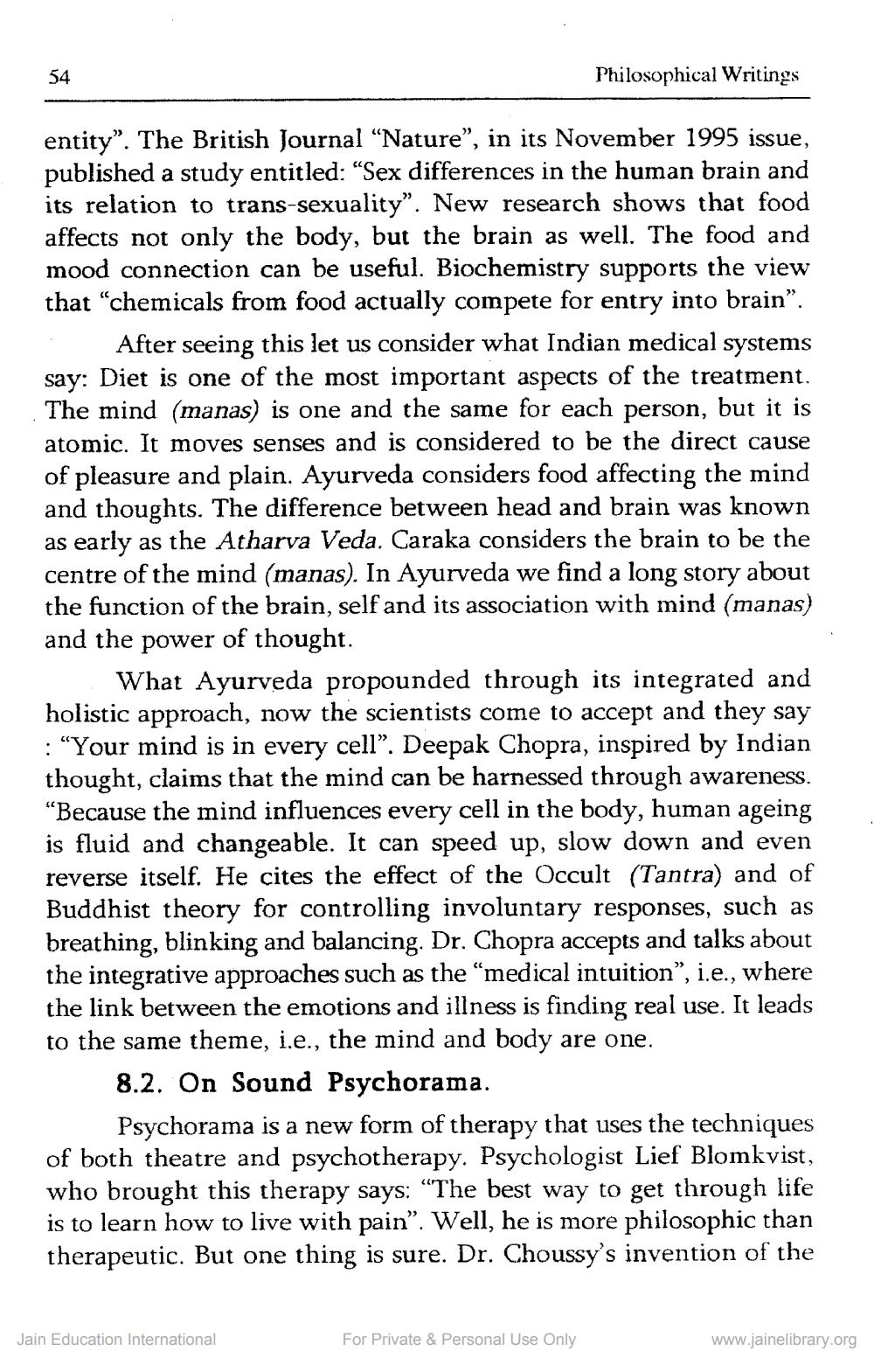________________
54
Philosophical Writings
entity". The British Journal "Nature", in its November 1995 issue, published a study entitled: "Sex differences in the human brain and its relation to trans-sexuality". New research shows that food affects not only the body, but the brain as well. The food and mood connection can be useful. Biochemistry supports the view that “chemicals from food actually compete for entry into brain".
After seeing this let us consider what Indian medical systems say: Diet is one of the most important aspects of the treatment. The mind (manas) is one and the same for each person, but it is atomic. It moves senses and is considered to be the direct cause of pleasure and plain. Ayurveda considers food affecting the mind and thoughts. The difference between head and brain was known as early as the Atharva Veda. Caraka considers the brain to be the centre of the mind (manas). In Ayurveda we find a long story about the function of the brain, self and its association with mind (manas) and the power of thought.
What Ayurveda propounded through its integrated and holistic approach, now the scientists come to accept and they say : “Your mind is in every cell”. Deepak Chopra, inspired by Indian thought, claims that the mind can be harnessed through awareness. “Because the mind influences every cell in the body, human ageing is fluid and changeable. It can speed up, slow down and even reverse itself. He cites the effect of the Occult (Tantra) and of Buddhist theory for controlling involuntary responses, such as breathing, blinking and balancing. Dr. Chopra accepts and talks about the integrative approaches such as the “medical intuition”, i.e., where the link between the emotions and illness is finding real use. It leads to the same theme, i.e., the mind and body are one.
8.2. On Sound Psychorama.
Psychorama is a new form of therapy that uses the techniques of both theatre and psychotherapy. Psychologist Lief Blomkvist, who brought this therapy says: “The best way to get through life is to learn how to live with pain". Well, he is more philosophic than therapeutic. But one thing is sure. Dr. Choussy's invention of the
Jain Education International
For Private & Personal Use Only
www.jainelibrary.org




